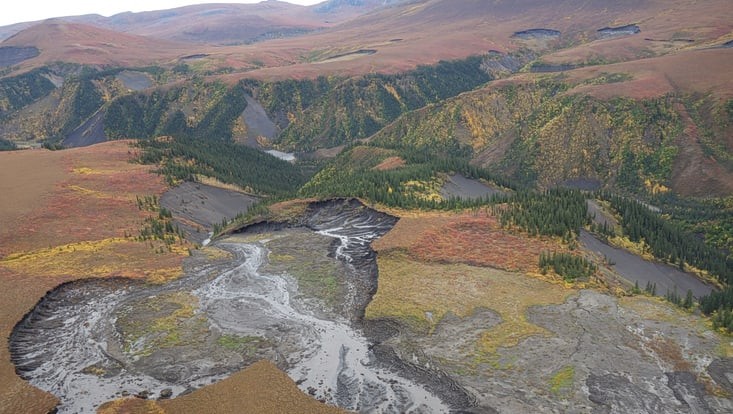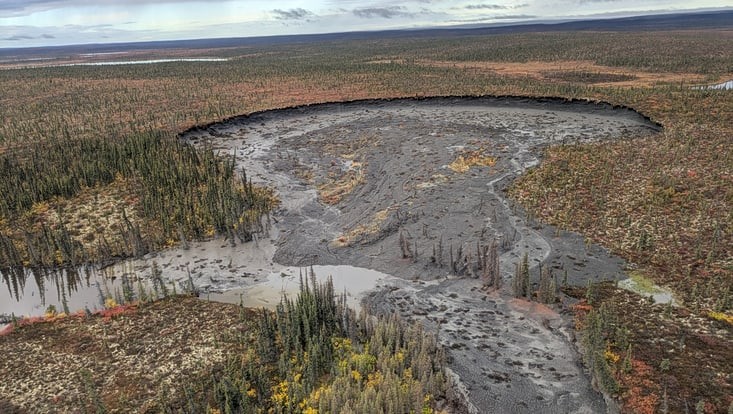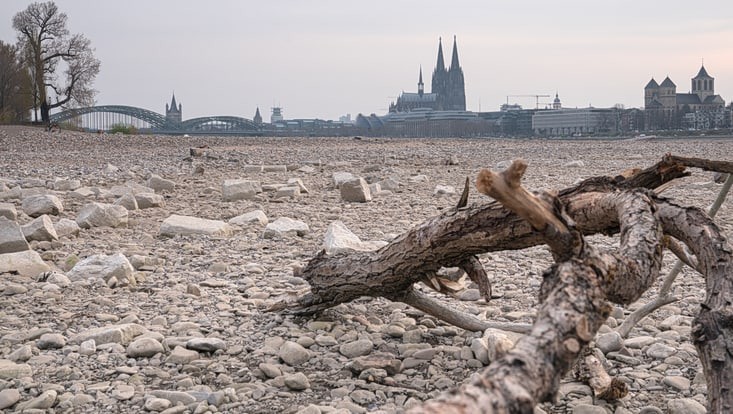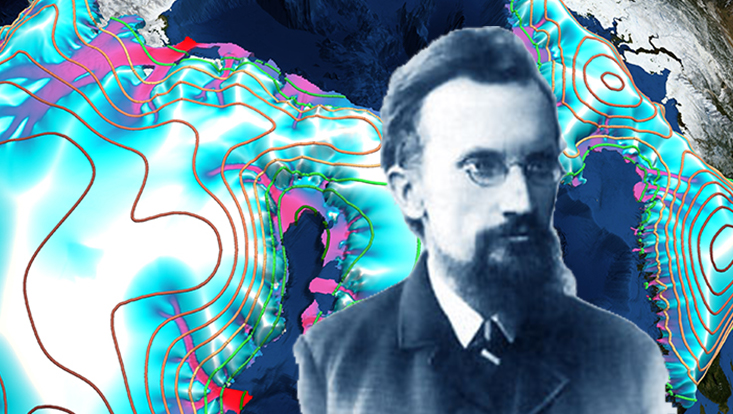Major project launchedWhen permafrost thaws rapidlyInternational research in the Arctic: ESRAH team contributes its modelling and biogeochemical expertise
8 October 2025, by AWI/ESRAH

Photo: Christian Knoblauch/ UHH
Rapidly thawing permafrost can accelerate climate change. Researchers want to determine to what extent the greenhouse gases carbon dioxide and methane released by abrupt permafrost thaw affect the climate. In addition to partners from the US, Canada, the Netherlands and Sweden, the Department of Earth System Sciences – part of the University of Hamburg’s Earth and Society Research Hub (ESRAH) – is contributing to the international, multi-million-euro project Rapid Permafrost Thaw Carbon Trajectories (PeTCaT), coordinated by the Alfred Wegener Institute (AWI). Roughly 1.8 million euros of the project’s funding will go to the University.
Particularly relevant in this regard: abrupt processes where entire sections of permafrost-influenced ecosystems disappear in just a few years, e.g. when coastlines crumble, when so-called thermokarst lakes grow deeper and deeper, or when slopes collapse, laying bare the ice-rich soil below. When this happens, large amounts of organic matter are released that was frozen for centuries or even millennia, and which microorganisms now begin turning into CO₂ and methane. These abrupt processes are under-researched and are not reflected in climate models. The widespread, rapid thawing processes and their impacts affect the carbon cycle – particularly on the smaller time scales of years and decades that are most relevant for climate policy.
“To more accurately gauge the greenhouse-gas balance in the Arctic, we need to understand how biogeochemical processes in the soil and vegetation interact when it comes to abrupt permafrost thawing,” says Christian Beer, one of the participating ESRAH experts from the University of Hamburg’s Institute of Soil Science. “To that end, we’re now conducting new field and lab experiments.” Guido Grosse, project coordinator from the AWI, adds: “How quickly permafrost thaws greatly depends on the region and the processes at work there. To date, there’s been virtually no research into abrupt processes.”

The Arctic permafrost stores massive amounts of organic carbon in its frozen soils, e.g. in the form of decayed plant matter. But the Arctic is rapidly warming, causing these “eternal iceboxes” to thaw. The result: more and more greenhouse gases from the ground are being released into the atmosphere.
The researchers are now establishing an innovative dataset: they’re using remote sensing and Deep Learning methods to map abrupt thawing processes throughout the Arctic. By doing so, they hope to determine where these processes take place, how frequently and how intensively – and how they’re connected to climate change and extreme weather events. This information is combined with existing datasets and models to project how these changes could evolve in the future.
At the same time, the team is gathering data at selected sites across the Arctic. The experts are collecting soil sample and measuring fluxes of greenhouse gases to assess how fast different types of organic material from thawing permafrost break down.
“One piece of the puzzle is that we regularly integrate any new findings we make into our computer models,” Christian Beer explains. “This allows us to reflect the effects of abrupt thawing in our simulations – and to estimate what they mean for the remaining global carbon budget and climate targets.”
Over the next five years, the project team will prepare a range of climate projections that show how the carbon cycle and climate could develop in the Arctic permafrost zone. The projections will also show the interactions with changed vegetation patterns and biogeochemical feedbacks these additional emissions could produce in various climate scenarios.
About PeTCaT
The project, which will continue from October 2025 to September 2030, has received 8.8 million euros of funding from the non-profit organization Schmidt Sciences. Its geographic focus is on the Arctic as a whole, with field studies in Alaska, Canada and Finland. PeTCaT, coordinated by the Alfred Wegener Institute (AWI), brings together institutions worldwide: the AWI (Germany), University of Alaska Fairbanks (USA), University of Alberta (Canada), University of Hamburg (Germany), Stockholm University (Sweden), and Vrije Universiteit Amsterdam (Netherlands).


